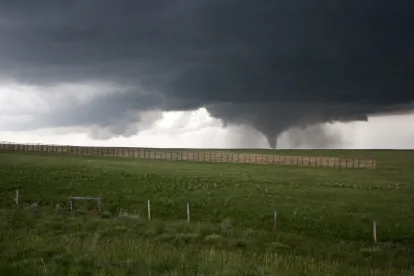Like many across the globe, we have seen the heartbreaking destruction and loss caused by the recent devastating hurricanes. Now that some affected areas are beginning to move beyond the initial concern for safety and security, many of our retail clients face unusual legal issues and have questions regarding environmental, tax, insurance coverage, and other issues in the aftermath of these storms.
Insurance
For retail companies affected by these natural disasters, it is important to protect your insurance assets by taking immediate steps. The following checklist may be of assistance:
-
Locate and analyze your insurance policies for all potential coverage. Property insurance is the first type of coverage to examine, but there may also be auto policies, “package” policies, marine policies, and general liability policies that are responsive. In addition to providing coverage for physical damage to your property, many commercial property insurance policies also include coverage for losses due to interruption of normal business activities. Policies typically cover loss of business income from physical loss or damage occurring through the period of rebuilding, repairing, or replacing damaged property. Such coverage will be particularly important when retailers are grappling with catastrophic, months-long disruptions to their operations. Damage to a retailer’s suppliers also may result in covered “contingent business interruption” losses. This coverage may be critical to retailers where supply chains are disrupted.
-
Keep records of your losses, including your business interruption and contingent business interruption expenses. Documentation for property loss includes not only property that was damaged but also any property rendered unusable. There may be an obligation to preserve and protect the property from further losses.
-
Provide notice to all of the insurance companies from which you might seek coverage and follow all policy terms, procedural requirements, and deadlines to preserve your rights. Notice requirements in policies variously use the terms “prompt,” “immediate,” and “as soon as practicable.” Keep in mind that there is no such thing as too much notice—and such notice needs to be in writing—so erring on the side of more notice rather than less is recommended. If you need assistance in protecting your insurance assets, our insurance recovery lawyers are available 24/7 to help you with any policy review, analysis, or advice relating to the recent hurricanes.
Environmental Issues
Due to flooding and extreme winds, retailers in affected areas may find that their property is covered with potentially hazardous materials. In addition, some retailers may have solid or hazardous materials onsite that may have been released.
Certain wastes and debris that may originate from outside retail stores due to the storms require extra care in handling. These wastes include potentially dangerous or hazardous wastes such as
-
asbestos containing material,
-
polychlorinated biphenyls (PCBs) in utility poles,
-
petroleum products,
-
firearms and munitions, and
-
wastes contained in underground storage tanks.
In addition, the retail sector contains a very large number of diverse products. Certain retail stores may contain waste that is regulated under a federal or state statute as hazardous wastes (e.g., certain household cleaners and automotive products), solid wastes (e.g., garbage or refuse), or special wastes (e.g., waste tires, antifreeze, or batteries).
There are exceptions, releases from liability, and relaxation of standards that are often available in a natural disaster. For example, the Resource Conservation and Recovery Act (RCRA) generally does not require entities to obtain permits for treatment or containment activities in response to discharges of hazardous waste; the imminent threat of a discharge to hazardous waste; or an immediate threat to human health, public safety, property, or the environment from explosive materials. [1]
If you have concerns about the ability to meet environmental responsibilities, it is important to document your conclusions and contact the US Environmental Protection Agency (EPA) or your state environmental agency if you believe that it is likely that you are unable to meet your obligations. In particular, we recommend the following steps:
-
Assess and list the exact reason(s) that your company may not be able to meet an environmental obligation.
-
Determine if the issue is an emergency that should be reported immediately. If so, contact your local law enforcement agency or state hotline.
-
Consider contacting the EPA and/or the relevant state environmental agency to notify that you may be unable to meet your environmental obligations. It is important that a company reaches out in writing and by phone to create a record of the exact nature of the problem, any steps taken to mitigate, and any relief requested going forward.
-
Mitigate as much as you reasonably can.
-
Retain all records of the event for future investigations.
As with insurance, our environmental team is ready to assist at any time to talk you through these steps and liaise with local and federal officials.
Tax Considerations
Tax Deductions for Retailers
Retailers should be aware of any deductions that they may be able to claim on their tax returns as a result of damage or loss to business property. In general, for federal income tax purposes, corporation and non-corporation taxpayers may deduct losses of property used in a trade or business or profit-seeking activities, including those attributable to property destroyed in a natural disaster. Where business property is partially destroyed, the amount of the loss that can be deducted is the lesser of the adjusted basis of the property and the decline in fair market value due to the casualty. Where business property is totally destroyed and the fair market value immediately before the casualty is less than its adjusted basis, a deductible loss is allowed up to the property’s adjusted basis. For losses subject to reimbursement (including by insurance), the reimbursement (or estimated reimbursement) reduces the amount of deductible loss. If the actual reimbursement ultimately received differs from the estimated reimbursement previously taken into account for tax purposes, the taxpayer may have to adjust its tax returns for the tax years in which the actual reimbursement was received to reflect this.
In general, taxpayers claiming a loss must deduct the loss in the year that it occurred. However, in cases where a taxpayer claims a loss due to a federally declared disaster, as is the case with Hurricanes Harvey, Irma, and Maria, the taxpayer can elect to deduct the loss for the tax year immediately preceding the tax year in which the loss occurred. This election may result in lower taxes for the preceding year, which may produce or increase a cash refund.
Retailers will need to substantiate the amount of loss that they take as a deduction. Generally, taxpayers must be able to show the type of casualty and when it occurred, that the loss was directly caused by the casualty, that they owned the property, and whether a claim for reimbursement exists for which there is a reasonable expectation of recovery. If records to support the loss deduction are destroyed or lost, the taxpayer may have to reconstruct them. For example, to substantiate inventory losses, taxpayers should attempt to reconstruct their records by obtaining invoices from their suppliers, preferably dating back at least one calendar year. For losses to furniture and fixtures, taxpayers should sketch an outline of the business location and fill in the details of the sketches to show where these assets were located. For further details on best practices to substantiate losses where records are destroyed or lost due to a disaster, retailers should feel free to contact one of the Morgan Lewis lawyers listed below.
Tax Return Filing and Payment Extensions
The Internal Revenue Service (IRS) has provided businesses, including retailers, affected by Hurricanes Harvey and Irma with federal tax return filing and payment deadline extensions. For retailers affected by Hurricane Harvey, the IRS will postpone tax return filing and payment deadlines occurring on or after August 23, 2017 until January 31, 2018. For retailers affected by Hurricane Irma, the IRS will postpone tax return filing and payment deadlines occurring on or after September 4, 2017 for retailers in Florida and September 5, 2017 for retailers in Puerto Rico and the Virgin Islands until January 31, 2018. Retailers with an IRS address of record located in areas designated by the Federal Emergency Management Agency (FEMA) as qualifying for individual assistance automatically qualify for the extension. However, if a retailer receives a late filing or payment penalty notice that has a filing, payment, or deposit due date falling within the extension period, the taxpayer must contact the number provided in the notice to have the penalty abated. Retailers in areas that are later added by FEMA as qualifying for individual assistance will also automatically receive the extension. Retailers that are located outside of a designated area but that have necessary records needed to meet deadlines located in a designated area may qualify for the extension, but they must contact the IRS directly at +1.866.562.5227 to determine eligibility for relief.
For eligible businesses, the extension covers the October 31, 2017 deadline for filing quarterly payroll and excise tax returns. Additionally, businesses that received filing extensions have additional time to file, including calendar-year partnerships with 2016 extensions that end on September 15, 2017 and calendar-year tax-exempt organizations with 2016 extensions that end on November 15, 2017. Similarly, for businesses affected by Hurricane Irma, the IRS will waive late-deposit penalties for federal payroll and excise tax deposits that would normally be due during the first 15 days of the disaster period.
[1] 40 C.F.R. §§ 264.1(g)(8); 265.1(c)(11); 270.1(c)(3).




 />i
/>i
